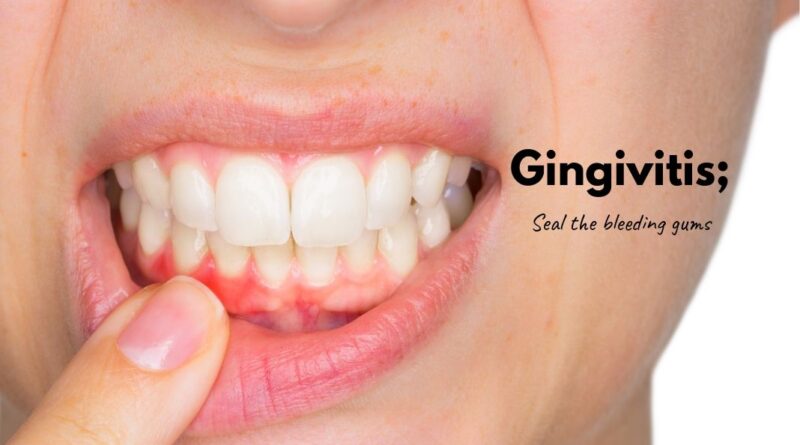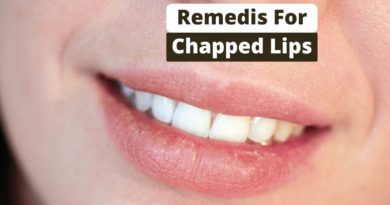Get Rid of Gingivitis Using These Naturopathic Treatment Plans
Gingivitis is a gum disease which is caused due to inflammation of the gums. It is the first stage of gum disease. Plaque is the immediate cause of gingivitis. If you do not get rid of plaque through proper flossing and brushing, it turns to tartar and produces poisons or toxins that can irritate the gum tissue and causes gingivitis. It is the soft, sticky and colorless bacteria that constantly forms on the gums and the teeth.
Gingivitis is a gum disease which is caused due to inflammation of the gums. It is the first stage of gum disease. Plaque is the immediate cause of gingivitis. If you do not get rid of plaque through proper flossing and brushing, it turns to tartar and produces poisons or toxins that can irritate the gum tissue and causes gingivitis. It is the soft, sticky and colorless bacteria that constantly forms on the gums and the teeth.
Conventional treatment for Gingivitis includes regular dental cleanings, antibacterial mouthwash, retainers or orthodontics to align teeth properly, repair or replacement of dental appliances, treatment of other health conditions and ‘over-the-counter’ anti-inflammatory medicines.
Gingivitis can be completely treated at home as there are a number of natural remedies, essential oils, herbs and foods which are easy to lay hands on which do not cost much too.
- Home Remedies
- Natural Remedies
- Foods
- Herbs
- Essential Oils
Table of Contents
CURE 1: How to cure Gingivitis with Home Remedies
1. Coconut oil
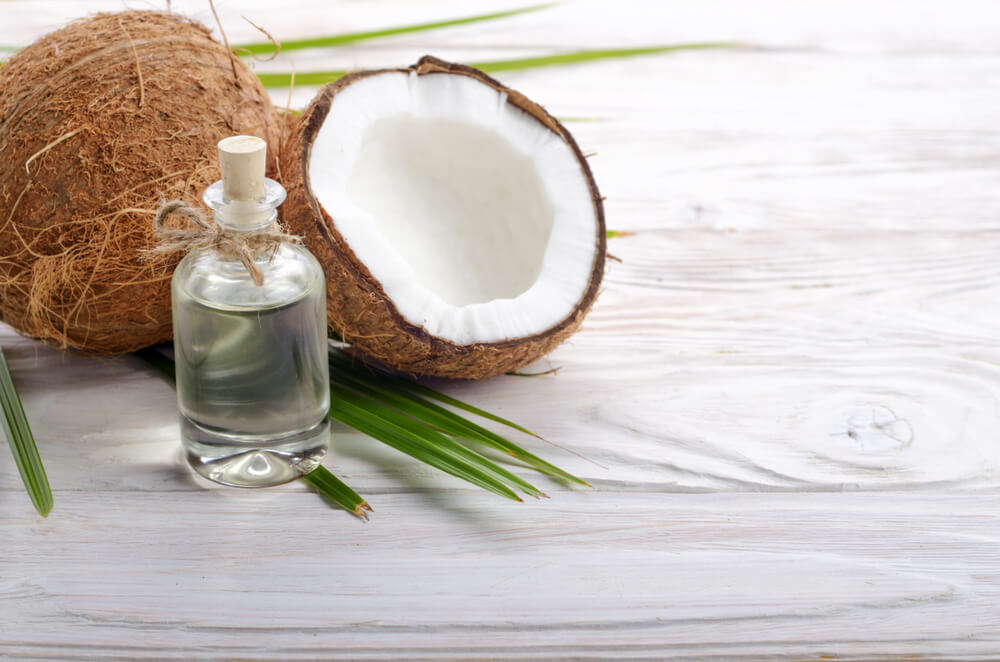
Coconut oil is rich in fatty acids called Lauric acid, which kills harmful bacteria of the mouth which are responsible for bad breath, gum disease, and tooth decay. It is particularly very effective in killing a bacteria called Streptococcus mutans that is a prime cause of tooth decay(1).
Ingredients
- Coconut oil
- Lukewarm water
Procedure
- Put 3-5 teaspoons of coconut oil into your mouth
- Gargle the oil for about 20mintues
- Ensure that the oil doesn’t touch the epiglottis
- Spit the oil after that
- Gargle your mouth with lukewarm water
- Spit the water out
- Brush your teeth with your regular toothpaste
How much to use: Do it regularly for better results on how to get rid of gingivitis
Benefits: When it comes to all-natural ingredients which can benefit every part of your body, coconut oil is the best of it. As an added benefit, your mouth and teeth will look and feel healthier with daily treatment of coconut oil. It has an incredible effect on ulcerative gingivitis.
2. Aloe Vera And Baking Soda for Gingivitis
Baking Soda is a very effective remedy for treating gingivitis as it neutralizes the acids of the mouth, thus decreasing the risk of tooth decay.
Due to its antibacterial and antifungal properties, Aloe Vera proves to be very effective against gingivitis as it prevents the bacteria to accumulate which leads to plaque formation.
How to use Aloe Vera and Baking Soda for Gingivitis
Ingredients
- 3 teaspoon of baking soda
- 2 teaspoon of Aloe Vera
- 1 cup of water
- 10 drops of lemon essential oil
- 4 teaspoons of vegetable glycerine
- 1 cup of lukewarm water
Procedure
- Mix all the above ingredients in a small vessel
- Mix thoroughly
- Scrub your teeth with this mixture
How many times: You can do this 2 times a day.
Benefits
Baking soda exerts an antibacterial effect on gingivitis and soothes gums and teeth. It helps to whiten the teeth. Baking soda restores pH balance, and salt has antimicrobial properties.
Precautions
Do not add more vegetable glycerine as it can interrupt the remineralization process of your teeth. It is recommended to use fresh gel extracted from the Aloe Vera leaf for any topical application. But make sure that after plucking the leaf, use it the same day.
3. Guava leaves
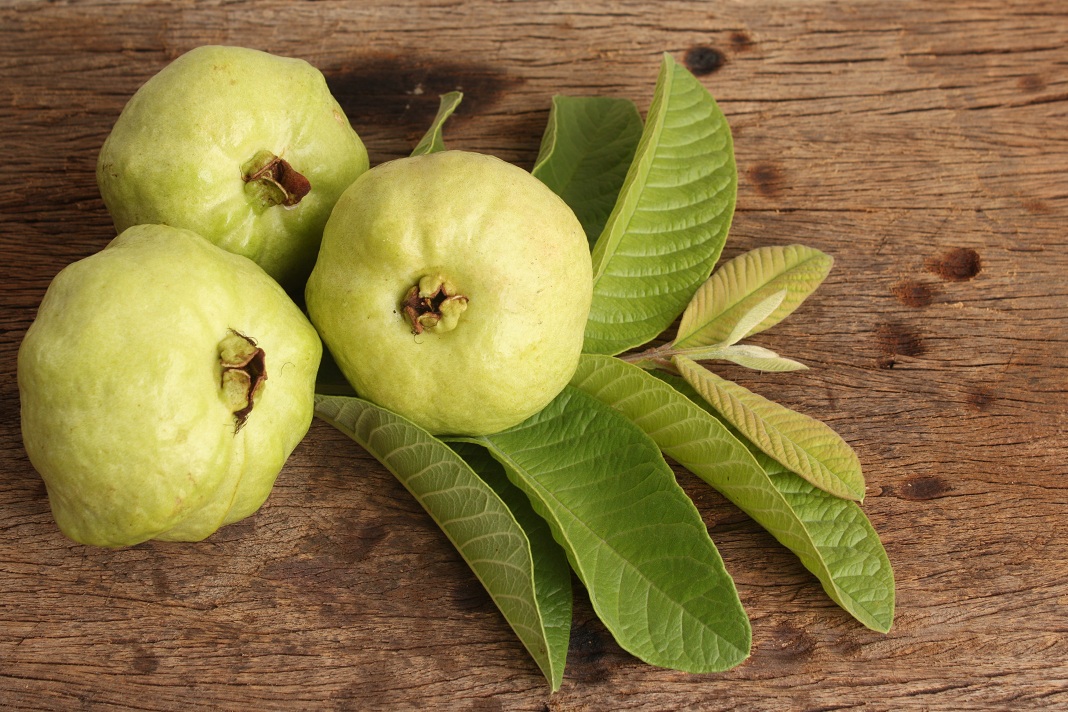
Guava leaves possess antimicrobial, antioxidant, analgesic and anti-inflammatory properties which makes it one of the best remedies against gum diseases and toothaches. In addition to this, guaijaverin that is present in guava leaves acts as an antiplaque agent.
How to use
Ingredients
Fresh Guava Leaves, a glass of clean water
Procedure – 1
- Wash guava leaves thoroughly
- Chew them for about 2 to 3 minutes
- Do not swallow
- After this, wash your mouth with clean water
How many times: Do this 2 times daily.
Procedure – 2
- Grind some guava leaves into a fine paste using a little water.
- Use this as a toothpaste.
Procedure – 3
- Add 4 to 6 drops of guava leaf extract to 1 glass of water
- Use this solution as a mouth rinse
Benefits: Guava leaves are packed with flavonoids. They have antibacterial properties which makes it a good option for treating gums and teeth related problems.
4. Lemon Juice
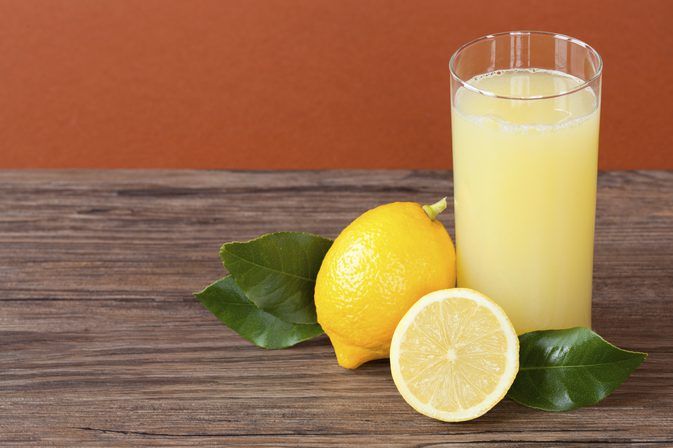
Lemons have anti-inflammatory and antibacterial properties which help in treating gum related diseases. Lemons also have Vitamin C which is good to fight off infection.
How to Use
Procedure – 1
- Take a glass of warm water.
- Squeeze the juice of 1 lemon in it.
- Use this solution as a mouthwash after you finish brushing and flossing.
How many times: Do this for at least 2 times a day.
Procedure – 2
- Take 1 tablespoon of lemon juice.
- Add enough salt to make a paste-like consistency.
- Apply this paste to your gums and leave it for as long as you can hold.
- Wash your mouth with clean water.
How many times: Do this 4 to 5 times a day.
CURE 2: Natural Remedies for Gingivitis
1. Mustard Oil & Salt

How to use
Ingredients
- 1 teaspoon mustard oil
- 1/4 teaspoon salt
- A small bowl to mix the above
Procedure
- Add 1 teaspoon of mustard oil to a small bowl
- Add ¼ teaspoon of salt to it
- Mix well
- Rub this mixture to your gums for 2 minutes
- How many times:
- Do this 2 times a day
Benefits:
This mixture provides a soothing effect to the gums as it possesses antimicrobial and anti-inflammatory properties.
2. Lemon Juice
Lemons have anti-inflammatory and antibacterial properties which help in treating gum related diseases. Lemons also have Vitamin C which is good to fight off infection.
How to Use
Procedure – 1
- Take a glass of warm water.
- Squeeze the juice of 1 lemon in it.
- Use this solution as a mouthwash after you finish brushing and flossing.
How many times: Do this for at least 2 times a day.
Procedure – 2
- Take 1 tablespoon of lemon juice
- Add enough salt to make a paste like consistency
- Apply this paste to your gums and leave it for as long as you can hold
- Wash your mouth with clean water
How many times: Do this 4 to 5 times a day.
Also Read: 8 Best Juice Recipes for Fast Weight Loss
3. Cayenne
How to use
Ingredients
- 1 pinch of cayenne powder
- 1 teaspoon toothpaste of your choice
- 1 toothbrush
- A small container to mix the above
Procedure
- Add 1 teaspoon toothpaste into a small bowl
- Add 1 pinch of powdered cayenne
- Mix well
Use this mixture and brush your teeth with a toothbrush
How many times: Do this 1 time a day
Benefits:
This mixture prevents further gum problems. It also kills the bacteria that causes gingivitis.
CURE 3: Foods to treat Gingivitis
1. Figs
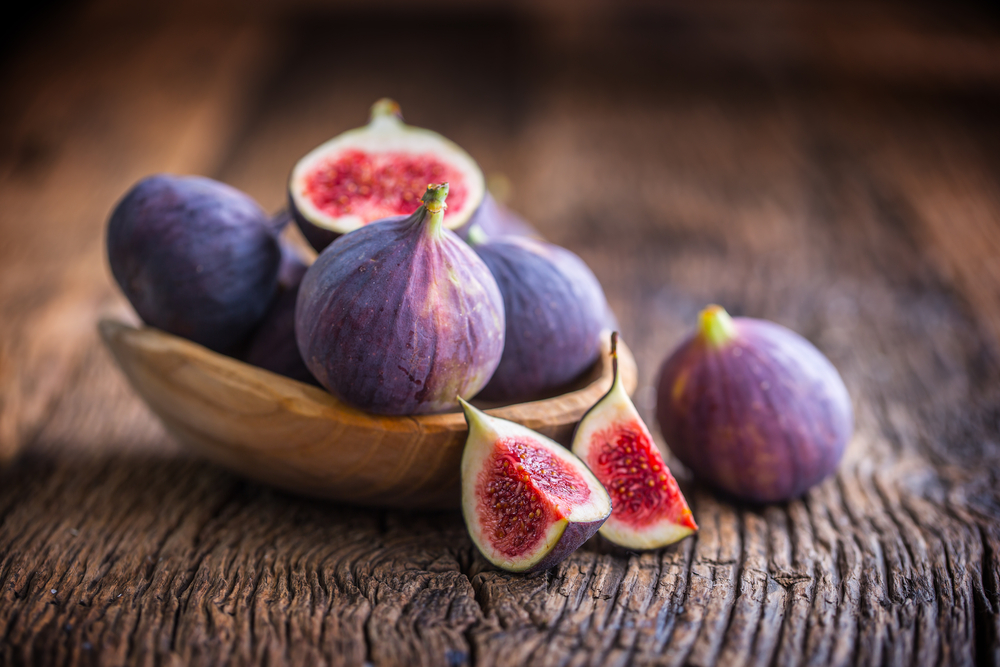
Figs are rich in minerals and vital vitamins. They contain manganese, potassium, magnesium, iron, and copper. They act effectively in restoring vitamins and minerals of the teeth, thus strengthening the teeth(2).
How to use
- Take to 2-3 fresh figs
- Cut into slices
- Chew the figs slowly after meals
How many times: Wondering how to get rid of gingivitis? You can eat figs every day for good results
Benefits:
Figs are used to strengthen the gums and cavities. They increase the secretion of saliva by stimulating salivary glands. They help to clean teeth, remove plaque and reduce the effect of gingivitis on gums.
Precautions:
Always make sure to use fresh figs and wash it thoroughly before use as there can be dirt over it.
2. Saltwater salt water for gingivitis
Saltwater mouthwash is very effective in treating your gum inflammation caused by gingivitis. It is a natural disinfectant which helps your body heal by itself.
Salt water also helps ease pain, reduces bacteria, relieves from bad breath and removes food stuck between the teeth.
How to use
Ingredients
- 1 glass of distilled lukewarm water
- Half teaspoon salt
Procedure
- Take a glass of distilled lukewarm water
- Add half a teaspoon salt to it
- Stir well until the salt is completely dissolved in the water
- Swish this mixture in your mouth for at least half a minute
- Spit out the water
How many times: Do this 2 to 3 times a day
Precautions:
Because of the acidic nature of the mixture, long term use may cause damage to the tooth enamel and erode the tooth.
3. Turmeric

Turmeric has curcumin which has anti-inflammatory and antioxidant properties that treat pain, reduce plaque, bring down swelling and inflammation of the gums. It also prevents infection by reducing bacterial infection.
How to use
Ingredients
- Lukewarm Water
- Turmeric
Procedure
- Add turmeric to lukewarm water
- Prepare a paste-like consistency
- Brush your teeth without toothpaste
- Apply the turmeric gel to your gums
- Leave it for about 20 minutes and gargle
How many times: Repeat twice a day for good results, especially for better results on pregnancy gingivitis.
Benefits
Turmeric is rich in antifungal and antibacterial properties. It has all the healing properties on reddening of gums and swollen gums. It can remove plaque caused due to gingivitis very effectively.
Foods To Eat
- Green leafy vegetables
- Spinach, kale, and collards
- Oranges and other citrus fruits
- Eggs, nuts, beans
- Green tea
- Celery, carrots, and apples
Foods To Avoid
- Deep fried foods
- Sweetened beverages (soda)
- Yeast processed foods
- Red meat
- White bread and pastries
- Margarine
- Processed meat
CURE 4: Herbs for Gingivitis treatment
1. Sage mouthwash
A recent research found that using sage as a mouthwash considerably reduces the bacteria that cause dental plaque.
How to use
Ingredients
- 2 cups of distilled or demineralized water
- 1 tablespoon dried sage leaves
- A small bowl to boil the water
Procedure
- Add 2 cups of water to a bowl
- Heat the water till it boils
- Turn off the heat
- Add 1 tablespoon of dried sage leaves to it
- Let it simmer for about 10 minutes
- Strain and let the water cool
Use this mixture to rinse your mouth every day.
How many times: You can do this 2 to 3 times a day.
Benefits:
Sage has antibacterial properties that act on the bacteria causing gingivitis and bad breath. They also relieve gum pain.
2. Sanguinaria (Bloodroot)
Sanguinaria or Bloodroot is a plant whose stem is used to make medications. It helps in treating varied ailments like tooth pain, skin problems, headaches, muscle and joint pain, fevers and breathing problems. It is also used in treating different types of cancers. It has chemicals that fight bacteria and treat inflammation.
How to use?
Ingredients
- 3-4 drops of sanguinaria extract
- 1 cup of lukewarm water
Procedure
- Add the sanguinaria (bloodroot) extract to the lukewarm water
- Gargle with this solution
How many times: Do it 2-4 times per week for good results
Benefits:
Sanguinaria extract (bloodroot) is a common ingredient in toothpaste. Sanguinaria toothpaste is the best toothpaste for gingivitis. You can also use it as gingivitis mouthwash by adding the bloodroots in lukewarm water and gargling. It contains an antimicrobial agent and is very safe to use and to get rid of gingivitis. It reduces gingivitis gums.
3. Cloves
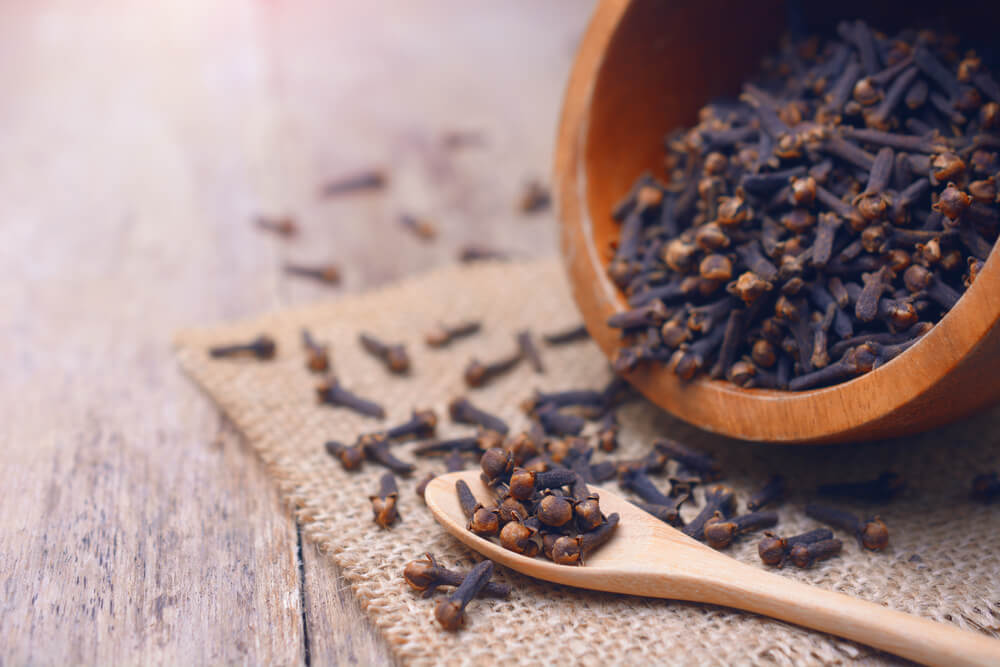
Cloves have antioxidant and antiviral properties that reduce inflammation and prevent plaque. They are also used in relieving pain.
How to use?
Ingredients
- 5 Cloves (cut into small pieces)
- 1 glass lukewarm water
- A clean cotton ball
Procedure
- Cut the cloves into tiny pieces
- Add it in a lukewarm water
- Wait for 5 minutes
- Dip a damp cotton ball or cotton swab into the solution
- Now gently rub the cotton ball onto your gums for about 10 minutes
- Leave it for 5 minutes
- Rinse your mouth with water
How many times: Do it three times a week for best results.
Benefits:
Cloves offer many benefits to the gums and teeth. They treat swollen gums and reduce inflammation, the two main problems of gingivitis. Clove works effectively against harmful bacteria that cause plaque and gingivitis.
4. Lemongrass
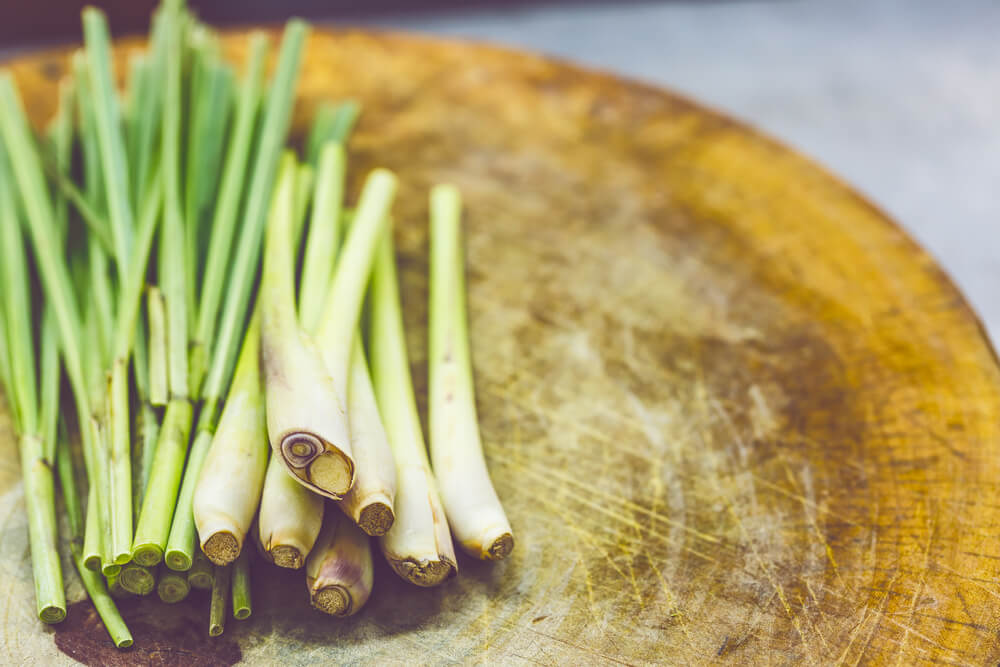
Lemongrass reduces plaque, which is the primary symptom of gingivitis. It is considered a natural alternative to traditional mouthwashes.
How to use
Ingredients
- Lukewarm water – 1 glass
- Lemongrass oil – 3 drops
Procedure
- Take lukewarm water in a cup
- Add 3 drops of Lemongrass oil to it
- Mix well
- Use this solution as a mouthwash
How many times: Do it twice a day for good results.
Benefits:
Lemongrass oil mouthwash is the best gingivitis mouthwash. It has high amounts of antioxidants and vitamin C. It has antibacterial and antifungal properties. It is rich in anti-inflammatory properties too. It is good for desquamative gingivitis.
CURE 5: Essential Oils for Gingivitis Treatment
1. Tea Tree Essential Oil

Tea Tree Oil is an effective remedy for treating gingivitis. It has antimicrobial and anti-inflammatory properties
How to use
Ingredients
- 1 cup Lukewarm water
- 3 drops of Tea Tree oil
Procedure
- Take a cup of lukewarm water
- Add 3 drops of Tea Tree oil to it
- Mix well
- Use it as a mouthwash with each session being 30 seconds
- You can also add this to your toothpaste
How many times: Do this 2 times a day
Benefits:
Tea tree oil is an incredibly effective natural remedy for healing plaque and gingivitis by fighting off infectious microbes. Tea tree oil is a natural antiseptic and thus good for treating gingivitis.
Precautions:
Always use the Tea Tree essential oil by mixing with a carrier oil like sunflower oil or coconut oil.
Also Read: Amazing Benefits and Uses of Tea Tree Oil
2. Clove oil
Clove oil has been used as a major remedy for tooth pain for centuries now. Eugenol, the compound present in clove oil has anesthetic properties.
Eugenol also possesses antioxidant and anti-inflammatory properties that help to keep teeth healthy apart from relieving pain.
How to use
Ingredients
- Clove oil 4 drops
- Clean Cotton ball
Procedure
- Take a clean cotton ball
- Drop 2 to 4 drops of clove oil on to it
- Place the cotton ball on the affected place in your mouth.
- Let it be there for about 5 to 10 minutes
You can use another cotton ball dipped in clove oil if you have a problem in more than one place in the mouth
How many times: Do this early in the morning just after brushing your teeth and just before going to bed.
Benefits:
Clove oil prevents cavities, bad breath, gingivitis, and tooth decay. It also treats bleeding gums.
3. Frankincense Essential oil
This is a mouthwash which is oil based and the major ingredient would be coconut oil blended with frankincense essential oil.
How to use
Ingredients
- Coconut oil – 6 Tablespoons
- Frankincense essential oil 4 drops
- A small glass container to mix both
Procedure
- Take 6 tablespoons of coconut oil in a container
- Add 4 drops of Frankincense Essential oil to it
- Mix well for an even consistency
Use this mixture as a mouthwash. After you do the mouthwash, spit the mixture out.
How many times: You can do this 2 times a day. Once as soon as you brush your teeth early morning and after brushing your teeth before going to bed.
Benefits:
Frankincense essential oil has antimicrobial and anti-inflammatory properties that work very effectively in fighting the bacteria causing gingivitis. Coconut oil, because of its sticky consistency, cleans out any particles that might get stuck between teeth and cause tooth decay and bad breath. Using this mixture as a mouthwash has a refreshing effect on your mouth.
Additional Tips on How to Prevent Gingivitis
- Go for regular dental check-ups
- Use a soft toothbrush
- Brush at least 2 times daily
- Use a toothbrush only for 3 months
- It is good to use a toothpaste for gingivitis that has antiseptic and antibacterial properties
- Clean your tongue with a tongue cleaner and floss your teeth whenever you brush
- Stop using tobacco as it damages your teeth and gums
- Use an antibacterial mouthwash 2 times a day.
- Eat calcium-rich foods for strong and healthy teeth
- Eat Vitamin C rich foods as they have antioxidant properties and promote oral health.
- After every meal, rinse your mouth with water
- To stimulate saliva, eat fruits and vegetables like apples, carrots, and radishes. They also help in keeping your mouth clean.
- As bacteria flourish on sweets, it is good to stay away from high sugary foods.
- To control and reduce the number of bacteria in your mouth, eat yogurt and cheese
- Vitamin D supplements help in reducing the risk of gum disease
As discussed above, Gingivitis is curable at home. One important thing to remember is that you should also not forget the precautions discussed. Follow the above home remedies and get relief from the symptoms of gingivitis and smile more confidently. And if you experience something serious, visit the dentist immediately.
Frequently Asked Questions
1. Is there a Cure for Gingivitis?
Treating gingivitis in a prompt and right way prevents it from worsening further, and helps avoid loss of teeth or any serious gum disease. It also reverses the symptoms. Gingivitis can also be stopped if you follow a regular regime of good oral care. You should also stop the usage of tobacco.
2. Are Gingivitis and Periodontitis Fully Curable?
Proper dental regime and regular visits to a dentist can cure gingivitis. If you do not follow proper dental care, there is a high chance that it might come back. On the other hand, Periodontitis leads to other dental problems like loss of teeth.
3. What are the Early Signs of Gingivitis?
Tender, painful, purple or bright red gums, bleeding gums when brushing, bad breath, swollen or soft gums are all the early signs of Gingivitis.
4. Can Gingivitis be Cured at Home?
The dentist removes the plaque and tartar during your regular visit. Gum diseases like gingivitis can be cured by following proper dental care like regular brushing and flossing after having meals and using a mouthwash.

